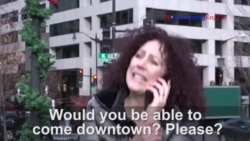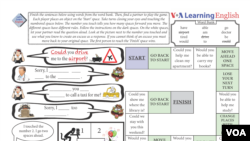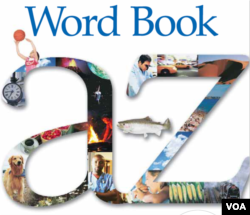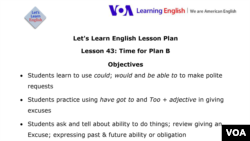Let's Learn English (Tiếng Anh cơ bản) là một khóa học tiếng Anh mới. Các giáo viên dạy tiếng Anh-Mỹ đã soạn thảo khóa học này cho những người mới bắt đầu. Khóa học sẽ kéo dài trong 52 tuần.
Mỗi tuần sẽ có một bài học mới bằng video cho thấy cuộc sống của giới trẻ Mỹ. Bài học giúp trau dồi kỹ năng nói, viết và từ vựng.
Ngoài ra cũng sẽ có các bài thực hành có thể in ra, bảng đánh giá và kế hoạch học tập cho cá nhân và giáo viên dạy tiếng Anh. Chúng tôi khuyến khích các bạn theo dõi các bài học hàng tuần và chia sẻ sự tiến bộ của bạn với chúng tôi qua phần ý kiến và email.
Tóm lược (Summary)
Anna lost her wallet and needs to go to her class. She is calling her friends to get help. Who will help her find money for the train?
Anna làm mất ví và cần đi đến lớp học. Cô gọi cho các bạn của mình để nhờ giúp đỡ. Ai sẽ giúp cô kiếm tiền để đi tàu?
Nói (Speaking)
In this video, learn how to say the new words. Then learn about using modal verbs, like "would" and "could," to ask for help politely.
Cách phát âm (Pronunciation)
Use this video to learn about using informal pronunciation with "what are you" and "would you."
Phần đối thoại (Conversation)
Anna: Hey there! Tonight, I am teaching my ukulele class. It is far away. So, I am going to ride the Metro. Oh, no! I lost my wallet! It has my Metro card, my credit card and my money! Oh, no!
Viết (Writing)
In this lesson, Anna needs help from a friend. Did you ever have a problem that a friend helped you to solve? Write to us by email or in the Comments section.
Click on the image below to download the Activity Sheet and practice using what you know to make polite requests and excuses.
Sách lược học tập (Learning Strategy)
Learning Strategies are the thoughts and actions that help make learning easier or more effective.
The learning strategy for this lesson is Use What You Know. When we use what we know, we solve problems in communication by thinking of familiar words or structures, and trying to communicate with them.
In this lesson, Anna learns that her friends cannot help her. She uses what she knows, playing the ukulele, to get the money she needs to ride on the train.
Do you ever use what you know when you speak English? Write to us about it in the Comments section or send us an email. Teachers, see the Lesson Plan for more details on teaching this strategy.
Bài kiểm tra (Quiz)
Listen to short videos and test your listening skills with this quiz.
______________________________________________________________
Từ ngữ mới (New Words)
______________________________________________________________
Tài liệu miễn phí (Free Materials)
Download the VOA Learning English Word Book for a dictionary of the words we use on this website.
Each Let's Learn English lesson has an Activity Sheet for extra practice on your own or in the classroom. In this lesson, you can use it to practice making excuses in response to requests for help.
Phần dành cho giáo viên (For Teachers)
See the Lesson Plan for this lesson for ideas and more teaching resources. Send us an email if you have comments on this course or questions.
Grammar: Could; Would; Be able to; Have got to; Too + adjective
Topics: Asking and telling about ability to do things; Review of Giving an Excuse; Expressing past & future ability or obligation
Learning Strategy: Personalize
Speaking & Pronunciation: Using modal verbs to make polite requests; Informal pronunciation of "what are you & would you"
____________________________________________________________
Now it's your turn. Send us an email or write to us in the Comments section below or on our Facebook page to let us know what you think of this lesson.











